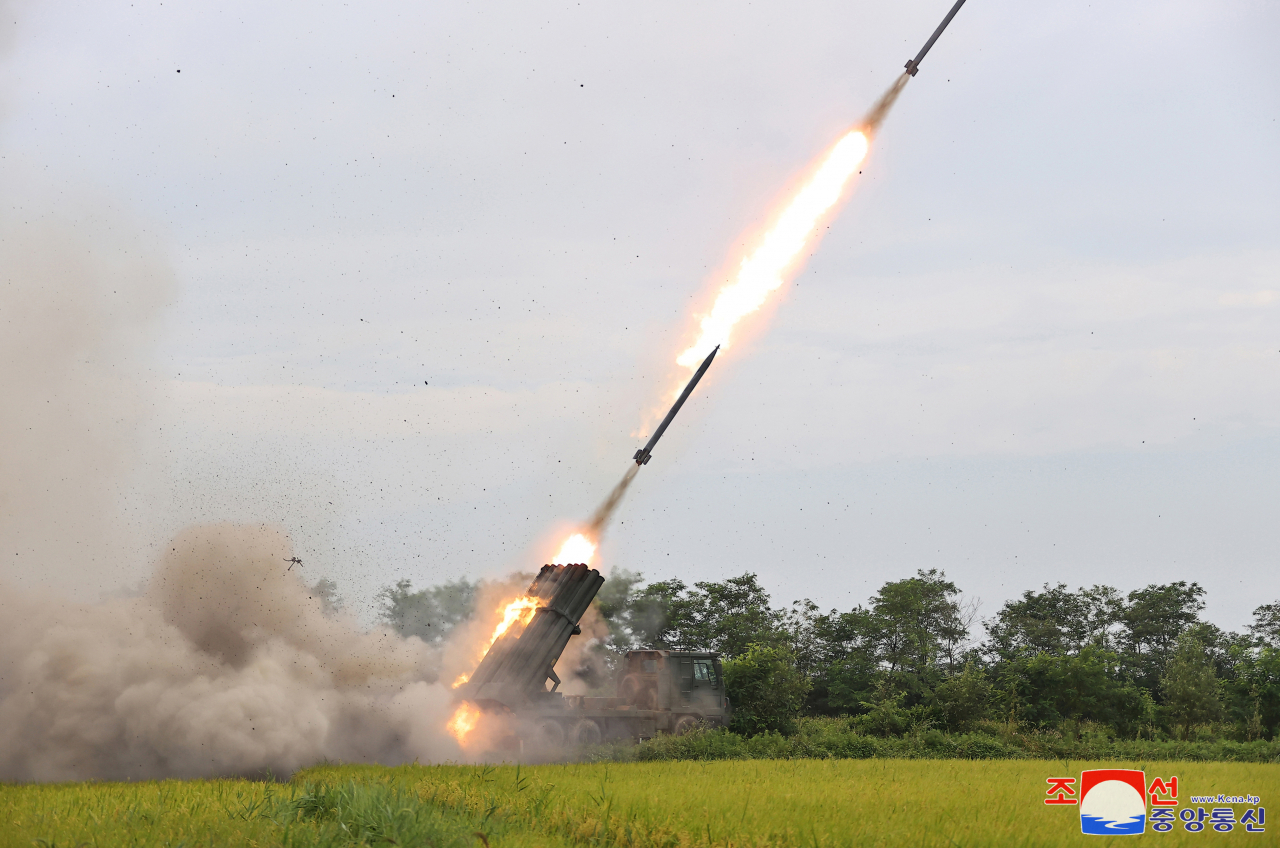Is the U.S. on the verge of a cold war with China?
Tensions between the U.S. and China have been frosty for a long time. But things have strained even further this year, as a result of the pandemic and China’s announcement of a new security law that threatens Hong Kong’s autonomous status. The frustrations between the countries are now reaching new heights. Could the world’s two foremost superpowers be on the cusp of a new cold war? If so, how will that play out with so much at stake?
On Thursday’s episode of What Next, I spoke with Joshua Keating, a senior editor at Slate who covers international affairs, about how the coronavirus has thrown already-strained relations with China into a deep freeze, and whether any sort of conflict could be next. Our conversation has been edited and condensed for clarity.
Mary Harris: I’m hoping you can explain this tweetfrom Pompeo: “Today, I reported to Congress that Hong Kong is no longer autonomous from China, given facts on the ground. The United States stands with the people of Hong Kong.”
Joshua Keating:The U.S. considers Hong Kong a separate political entity from the rest of China. This means things like the tariffs that the U.S. placed on Chinese exports during the recent trade war don’t apply to Hong Kong. It means there are different visa rules for travelers from Hong Kong. And when Chinese companies want to expand internationally, they often start by listing themselves on the Hong Kong stock market.
So what does it mean that Pompeo pulled this special status?
AdvertisementA bill that was passed by Congress last year during the Hong Kong protests basically requires the secretary of state to certify every year that Hong Kong is still sufficiently autonomous to be granted this special status. Both China and the U.S. didn’t really think the other would act on Hong Kong because it’s such a major escalation. The U.S. Chamber of Commerce was strongly opposed to this. Generally, the U.S. business community and the businesses that have their offices in Hong Kong were very opposed to pulling its autonomy. So it’s a controversial step.
Why now?
Advertisement Advertisement AdvertisementTrump is really spoiling for a fight with China, both because he’s been blaming China for the coronavirus and because he’s heading into an election year where he’s going to try to portray the Democrats as being soft on China and himself as being the guy who stood up to Beijing. I think right now we’re witnessing maybe the worst crisis in U.S.-China relations since Tiananmen Square in 1989.
AdvertisementFiguring out how the U.S. and China reached this new low point means understanding all the different ways the two countries challenge each other—and the way this coronavirus has magnified those friction points. Hong Kong is just one of many points of conflict, but what’s happened there shows how the coronavirus has given a sudden shock to U.S.-China diplomacy.Last year, when protesters flooded Hong Kong’s streets, demanding a say in the way the city runs, it seemed like the United States might be able to use the situation to its advantage. But the coronavirus changed all that.
Those protests have kind of dissipated, largely because of social distancing requirements. So it’s been a good moment for China to press its advantage when it’s harder to protest and when the attention of the international community is focused elsewhere. That’s involved arresting a number of activists who were involved in the protests last year. And the biggest escalation last week was when Beijing announced that it was going to pass a new security law that would ban what it calls “seditious activities” or “foreign interference” but can basically be used to criminalize any kind of dissent or what it sees as anti-China behavior.
Advertisement AdvertisementAnd this law that affects Hong Kong skips the usual process of going through Hong Kong’s government.
AdvertisementExactly. This is being inserted by the Chinese government into what’s effectively Hong Kong’s constitution. Pro-democracy activists in Hong Kong fear it’s going to be used to criminalize basically any kind of dissent or any kind of anti-China organizing in Hong Kong. A number of prominent pro-democracy politicians in Hong Kong said this is basically the end of “one country, two systems”—the end of Hong Kong’s political independence.
Thisis why Pompeo has suddenly declared that Hong Kong is “no longer autonomous from China.” This new security law was set to go to a vote this week. Pompeo’s tweet was a clear message.
AdvertisementThis announcement Pompeo made does not actually involve policy changes. This is a recommendation the State Department is making. It’s up to Trump how he wants to interpret it. If he wants to actually change the U.S. relationship with Hong Kong, he’d do it through an executive order. It seems unlikely he wouldn’t do anything, especially given all the buildup to this.
I think we’re going to see a lot of ferocious lobbying. The business community will want a softer response. The more business- and trade-oriented voices within the administration, like Trade Representative Robert Lighthizer, are going to want to water this down a bit.
How would you characterize the U.S.-China relationship now?
Advertisement Advertisement AdvertisementThere have always been two sides to the U.S. engagement with China. There’s the “pragmatic” side that looks at the economic, business, trade, and security benefits. On the other side, you’ve had conservative hawks, who don’t trust China’s international intentions, and activists, who don’t think we should be engaged with a country with such atrocious human rights practices.
There was this idea that the U.S. could have it both ways: that by engaging China, we would encourage it to act the way that we want it to. President Bill Clinton would say things like, By bringing China to the world, we bring the world’s values and democracy to China. The idea that by opening up its economy, we would also open up its political system. That was always a dubious proposition. But I think it allowed several U.S. administrations to defend the idea of engagement with China against criticism.
Advertisement AdvertisementI wonder when you think the relationship between China and United States began to shift.
I think it was Xi Jinping. After he took power in 2012, there was some hope that he would be a more pragmatic leader. It hasn’t happened that way at all. He’s effectively made himself a president for life. China’s clamped down even harder on Hong Kong, which resulted in the protests we saw last year. It’s overall become more repressive internally and more assertive internationally. So I think that, under Xi, the engagement narrative that a more open China would become a more democratic or cooperative China has kind of collapsed.
AdvertisementWith the United States leading the world in COVID-19 deaths, China is looking to present itself as the superpower that’s been able to rein in the pandemic. But there’s ample evidence China’s leaders struggled to quash the coronavirus early enough.
AdvertisementThis looks really bad for China. This whole idea that it’s the new responsible superpower takes a hit if its actions made the virus worse. So China engaged in what was called “mask diplomacy,” shipping medical equipment to countries that were hurt really hard, especially in Europe. And it spread its expertise as well as this message that it got the virus under control.
“It seems like we’re drifting into a period of hostility, and there don’t seem to be strong voices on either side who want to keep the relationship on track.” — Joshua KeatingA lot of the equipment turned out to be faulty. But early on, people appreciated the effort that China was making, and it got a lot of praise in Europe. I think that started to backfire because China pressed its advantage a little too hard.
What do you mean by that?
There are these stories that came out that China was demanding that officials in places like Germany, Canada, and the U.S. praise them publicly for the help. You saw Chinese sock puppets online disseminating the message that the virus had originated in Europe. There were doctored clips of Italians playing the Chinese national anthem in gratitude. China could have looked like the responsible country, especially as the U.S. totally bungled its response. But by being so aggressive and unwilling to countenance any sort of criticism, and instead actually actively spreading disinformation, China’s come off looking just as irresponsible and bellicose as the U.S.
Advertisement Advertisement Advertisement AdvertisementThere was reporting in the Times that said Chinese national television was spouting a lot of anti-American coverageand negative reports about Pompeo. It reminded me of the Cold War: a ton of propaganda about how bad this other place is.
There are a lot of parallels. Harvard professor Graham Allison has this theory called the Thucydides Trap: Whenever there’s a rising power that challenges a declining power, they’re usually destined for military conflict. You can poke holes in that theory. But last time I was in China, a lot of officials were talking about that idea of inevitable conflict, whether it’s in an active shooting war or even a kind of long cold war. That’s really taken hold, I think, in both Washington and Beijing. I would point out one key difference, which is that, I think, unlike in the Cold War, neither the U.S. nor China is coming into this with a whole lot of credibility.
AdvertisementBut it’s going to be tough for the rest of the world because of the economic and military importance of both the U.S. and China. Countries can’t just ignore them. You can’t have an effective climate deal that excludes the two largest CO2emitters in the world. You can’t have a meaningful security alliance that excludes the two largest militaries. But I think an unexpected consequence of this may be more multilateralism and economic and political cooperation among countries in Europe and Asia.
AdvertisementWhat happens when you fight a cold war and nobody shows up? How does an escalation like this end?
It seems like both sides right now see it as in their interest to escalate the crisis. Even after Tiananmen Square, there were back channels maintained between the first Bush administration and Beijing. Right now, it doesn’t seem like there’s the same level of communication, partly because of the Trump administration’s distrust of diplomacy.I think that right now you’re hearing more support in Washington and in the business community for this idea of decoupling: separating the U.S. and Chinese economies because of how intertwined supply lines are between them. That’s probably not possible to do entirely.
Advertisement AdvertisementRecently in The World
- I Study Famine. The Conversation About Gaza Has Been Very Confused.
- The Iran Strikes and World Central Kitchen Deaths Have Felt Like Turning Points—in America. In Israel …
- Putin Is Not Going to Let a Crisis Like This Go to Waste
- The Biggest Misconception About the Crisis in Haiti
I do think it seems like we’re drifting into a period of hostility, and there don’t seem to be strong voices on either side who want to keep the relationship on track. On the other hand, I don’t think this means we are necessarily destined for military conflict. If you look at the history of the Cold War, even during the worst periods, it was possible to make progress on arms control. There are definitely multilateral issues that the U.S. and China have common interests in, like climate change. There are still ways the U.S. and China can keep lines of communication open and act responsibly in areas where they have common interests while being clear-eyed that there are a lot of areas where, for the foreseeable future at least, they’re not going to see eye to eye.
Tweet Share Share Comment(责任编辑:产品中心)
-
Pope says England are not 'one
 MANCHESTER:England stand-in captain Ollie Pope said the team's cautious but successful run-chase
...[详细]
MANCHESTER:England stand-in captain Ollie Pope said the team's cautious but successful run-chase
...[详细]
-
 品茶吃笋,英德的专属味道| 广东年货大摸底清远篇⑧_南方+_南方plus“英德红茶,清甜芳香,茶汤透亮,我真的很喜欢!”在2024年“清远好风土”湾区年货大集暨清远五大百亿农业产业成果展示活动以下简称
...[详细]
品茶吃笋,英德的专属味道| 广东年货大摸底清远篇⑧_南方+_南方plus“英德红茶,清甜芳香,茶汤透亮,我真的很喜欢!”在2024年“清远好风土”湾区年货大集暨清远五大百亿农业产业成果展示活动以下简称
...[详细]
-
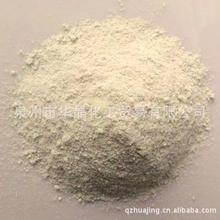 本报讯 “在办理出入境证照的过程中,我们发现了有人打着出国旅游的幌子申请办理出入境证照,而实际是出国之后进行劳务活动。”21日,市公安局出入境管理处的民警告诉记者,现在是出国劳务办证的高峰时期,民警根
...[详细]
本报讯 “在办理出入境证照的过程中,我们发现了有人打着出国旅游的幌子申请办理出入境证照,而实际是出国之后进行劳务活动。”21日,市公安局出入境管理处的民警告诉记者,现在是出国劳务办证的高峰时期,民警根
...[详细]
-
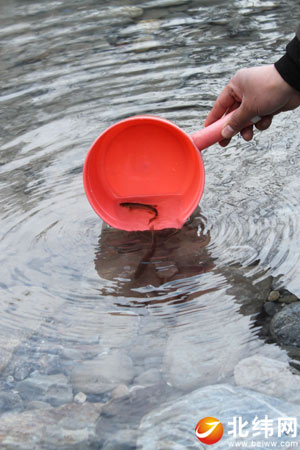 为雅鱼觅新家放流仪式现场本报讯 3月10日,天全县喇叭河风景区内彩旗飘飘,人声鼎沸。“天全河珍惜鱼类保护大鲵增殖放流仪式”在这里隆重举行,此次仪式通过将野生娃娃鱼和雅鱼放归大自然,再次彰显了天全县保护
...[详细]
为雅鱼觅新家放流仪式现场本报讯 3月10日,天全县喇叭河风景区内彩旗飘飘,人声鼎沸。“天全河珍惜鱼类保护大鲵增殖放流仪式”在这里隆重举行,此次仪式通过将野生娃娃鱼和雅鱼放归大自然,再次彰显了天全县保护
...[详细]
-
The AI stock bubble has burst. Here's how we know.
 When you live in tech bubble central, signs of a tech bubble become easier to spot every time. Drive
...[详细]
When you live in tech bubble central, signs of a tech bubble become easier to spot every time. Drive
...[详细]
-
 最近几周以来,由北京大学牵头的“北约”自主招生考试刚刚唱罢,以清华大学牵头的“华约”自主招生考试又登场。2月26日上午,由天津大学、同济大学、北京理工大学、东南大学等9所高校联合组成的“卓越联盟”自主
...[详细]
最近几周以来,由北京大学牵头的“北约”自主招生考试刚刚唱罢,以清华大学牵头的“华约”自主招生考试又登场。2月26日上午,由天津大学、同济大学、北京理工大学、东南大学等9所高校联合组成的“卓越联盟”自主
...[详细]
-
 本报讯“现在抢劫、抢夺、盗窃等案件发生较多,大家一定要提高自己的防范意识,收好贵重物品,不要给不法分子可趁之机。”近期,在公安机关“大走访”开门评警活动中,市公安局刑警支队积极结合自身工作职能,将安全
...[详细]
本报讯“现在抢劫、抢夺、盗窃等案件发生较多,大家一定要提高自己的防范意识,收好贵重物品,不要给不法分子可趁之机。”近期,在公安机关“大走访”开门评警活动中,市公安局刑警支队积极结合自身工作职能,将安全
...[详细]
-
 本报讯近日,雨城区组织各单位干部、职工、学校师生,观看学习了《四川:从悲壮走向豪迈》形势报告录像。观看报告的干部职工纷纷表示,报告科学回顾了夺取抗震救灾和灾后恢复重建重大胜利的光辉历程,科学描绘了四川
...[详细]
本报讯近日,雨城区组织各单位干部、职工、学校师生,观看学习了《四川:从悲壮走向豪迈》形势报告录像。观看报告的干部职工纷纷表示,报告科学回顾了夺取抗震救灾和灾后恢复重建重大胜利的光辉历程,科学描绘了四川
...[详细]
-
SCOTUS: The courts implementing Project 2025, without Trump.
 Earlier this month, the Supreme Court refused to allow a new rule issued by the Department of Educat
...[详细]
Earlier this month, the Supreme Court refused to allow a new rule issued by the Department of Educat
...[详细]
-
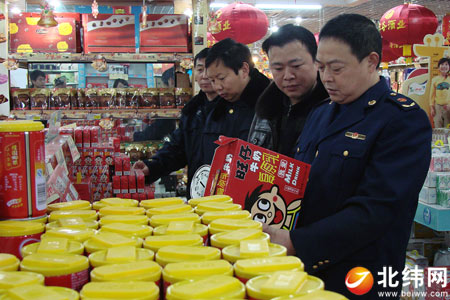 检查食品本报讯 新春佳节即将来临,为切实做好春节期间的食品安全工作,确保人民群众消费安全,27日,市工商局结合打击侵犯知识产权和制售假冒伪劣商品红盾百日执法行动,在市区内开展了食品安全专项整治活动。此
...[详细]
检查食品本报讯 新春佳节即将来临,为切实做好春节期间的食品安全工作,确保人民群众消费安全,27日,市工商局结合打击侵犯知识产权和制售假冒伪劣商品红盾百日执法行动,在市区内开展了食品安全专项整治活动。此
...[详细]

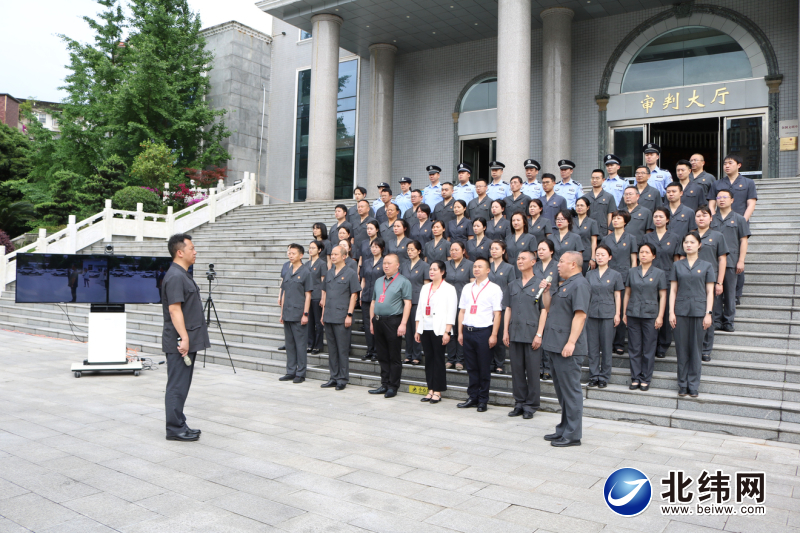 厚植精神文明沃土 培树司法文明新风
厚植精神文明沃土 培树司法文明新风 雨城区公安分局交警特勤大队召开“大走访”开门评警活动恳谈会
雨城区公安分局交警特勤大队召开“大走访”开门评警活动恳谈会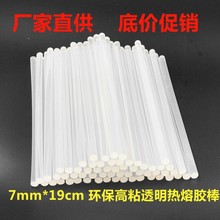 来! 算算你的“年经济”
来! 算算你的“年经济” 雅安市第二届人民代表大会第六次会议副秘书长名单
雅安市第二届人民代表大会第六次会议副秘书长名单 Bernie Sanders’ DNC speech sounded like everyone else’s. That’s astonishing.
Bernie Sanders’ DNC speech sounded like everyone else’s. That’s astonishing.